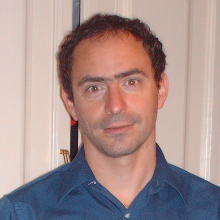Nanomedicine in B·Debate Fighting Blindness by Unit 10 of NANBIOSIS
The recent published Newsletter of Institut of Màcula and the Barcelona Màcula Foundation: Research for Vision reported about the forum B·Debate Fighting Blindness. Future Challenges and Opportunities for Visual Restoration, September 6-7 , that gathered more than thirty experts in the different areas related with blindness.
The second Session, about Nanotechnology and Nanomedicine, was chaired by Jose Luis Pedraz, Scientific Director of Unit 10 of NANBIOSIS and Gustavo Puras Ochoa, researcher of the group Nanobiocel, which coordinates Unit 10 of NANBIOSIS gave a lecture “Non-viral gene delivery for the treatment of inherited retinal disorders” :
Many devastating blinding disorders that affect the retina in the developed world have a well-known genetic background. Despite gene therapy strategies have made major advances in recent years, many of the patients affected by inherited retinal diseases must live under impaired vision, even with the best medical treatment. Therefore, the development of effective gene carriers represents a major challenge for the scientific community. At present, viral and non-viral vectors are the most employed approaches to deliver genetic material to the retina. Although first promising clinical trials results with viral vectors offer reasonable hope to patients affected by some inherited diseases that cause irreversible blindness such as Retinitis Pigmentosa, Stargardt´s disease, Choroideremia and Age related Macular Degeneration, important concerns related to the risk of oncogenesis, immunogenicity, inflammatory responses, and the persistence of viral vectors in brain after intravitreal injection have garnered the interest to invest on non-viral gene transfer methods. Compared with their counterparts, non-viral vectors offer many important advantages, since are less limited by the size of the gene to transfect, do not raise major safety concerns, are easier and cheaper to produce, and are classified as drugs rather than as biologist by the regulatory authorities.









